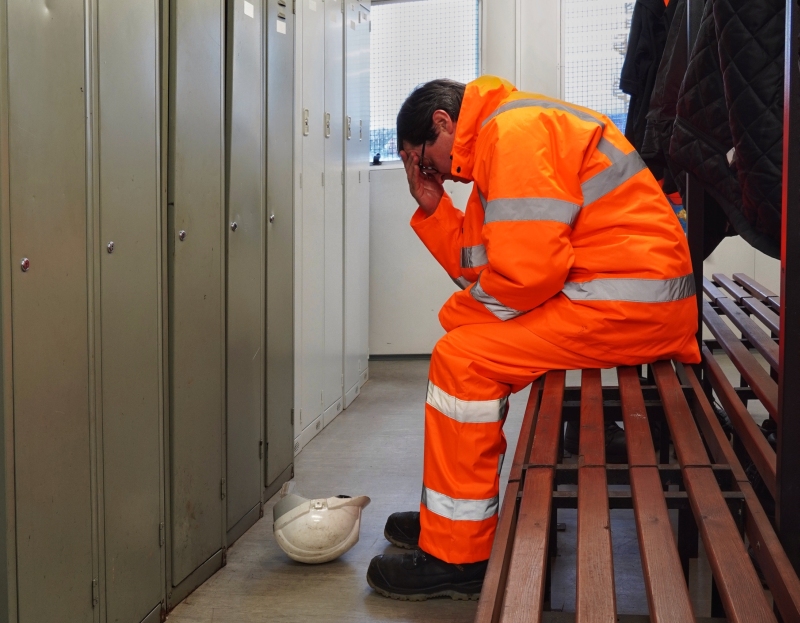
As a male-dominated industry operating in challenging circumstances against a backdrop of declining national mental health, construction is on a collision course with a ‘man’demic of its own. Jon Cooper, health and safety expert at Womble Bond Dickinson, examines the issue and looks at ways in which the construction industry can better address and protect mental health.
The construction industry has made great strides with health and safety, especially around worker safety and preventing physical injuries and deaths – but there are huge improvements that need to be made in protecting the mental health of workers.
Reported instances of anxiety, stress and depression in the industry have been on the increase for several years. The latest available figures from the ONS shows there were 2,526 suicides in construction between 2011 and 2019. Of those, 2,510 – or 99.4% – were men.

Of course, these figures don’t take the last 12 months into account. There is significant risk that the impact of the pandemic will extend way beyond the devastation caused by the virus itself.
While the entire nation wrestles with degrading mental health because of the pandemic, the construction sector is facing increased strain as a result of delayed contracts, skills and materials shortages and the prospect of new, more stringent legislation on its way.

“There are huge improvements that need to be made in protecting the mental health of workers.”
The strain will take its toll at every level – from C-suite downwards – and we must all work together to help ensure everything is done to protect each other and promote mental wellbeing as a priority for the industry.
Why is construction so at-risk?
The construction industry lifestyle is undoubtedly both challenging and stressful. Long and demanding hours, working away from home on site for weeks, contending with the many challenges of managing covid-19 on site, and the anxiety across the industry following the fall in shares for some large contractors and project uncertainty.
So, what can construction companies to protect their workers and to demonstrate that they have the issue under control?
Tackle the culture of non-communication
In a workforce that is predominantly male, specific risks associated with male mental health also need to be considered. Part of the blame lies with the “tough guy” image. Asking for help and opening up about emotions are just not things that come naturally to many of those working in the industry.
Employers need to reduce stigma, raise awareness, change attitudes and provide knowledge and training to empower employees to look after their mental health and wellbeing and those of their colleagues.
Culture check and culture change
Start with an immediate culture check and culture change: this needs to start at board level with leadership teams showing real commitment to creating a step change towards mentally healthier workplaces and workforces.
Revisit risk assessments
Mental health risks should be as prominent on your risk assessments as falls from height. If you feel there might be gaps, then revisit your risk assessment as a matter of urgency. Remember that an employer’s duty under the Health and Safety at Work Act extends to the health, safety and welfare of employees. That duty clearly encompasses mental health and wellbeing as well as physical health.
Raise awareness of counselling and support services
Employers should ensure their employees have access to and are aware of support available through counselling and therapy services. There are some positive signs that things are moving in the right direction with some contractors upskilling their workforce through the introduction of Mental Health First Aiders on site for example.
However, employers must continue to provide these interventions, services and training in order to embed culture change – not just tick the mental health box. Signing up to the Building Mental Health Charter is one way to demonstrate commitment to improvement.
Peer support
Peer support is incredibly important and employers need to train and equip employees with the right tools so they can look out for colleagues who may be struggling with their mental health. Identifying the early signs and knowing how to start the conversation will make a huge difference.
But the easiest thing that we can all do is talk. If you are concerned about a colleague, ask them if they’re ok. See if they want to go for a walk or a cup of tea at lunchtime. Generally create a safe environment so they can open up to you if they need to.










